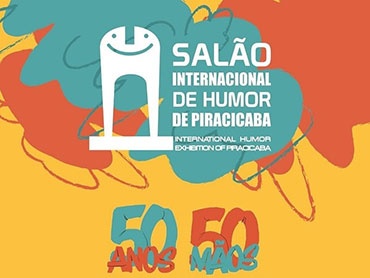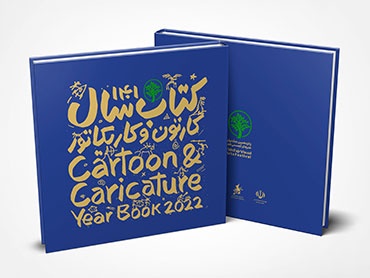
Norton Maza's "Inter-Reality" will represent Chile at the 61st Venice Biennale in 2026
The work selected—through a public call from the Ministry of Culture, Arts, and Heritage—will be the project featured in the Chilean Pavilion during the event, which will open in May 2026 in the Italian city.
Under the name "Inter-Reality," by Chilean artist Norton Maza, curated by Dermis León and Marisa Caichiolo, and managed by Claudia Pertuzé, it is the project selected to represent Chile at the 2026 Venice Biennale, according to the Ministry of Culture.
The proposal was chosen through a public call, highlighting its curatorial strength, artistic excellence, and the technical feasibility of Chilean representation.
"Participating in the Venice Biennale is of utmost importance as it places Chile in the largest showcase of contemporary art in the world. Norton Maza's Inter-Reality proposal stands out for its ability to foster critical reflection on national artistic creation, establishing a poetic dialogue between our local reality and major universal themes, such as ecology and geopolitics,” said the Minister of Culture, Carolina Arredondo.
The Project
Norton Maza's work addresses contemporary and universal themes, amplifying them through a Latin American perspective.
On the outside, the work manifests itself as a monumental piece that alludes to geopolitics, landscape, and ecology. This sophisticated and technological exterior intentionally contrasts with an interior of precarious and artisanal dioramas, characteristic of Latin American inventiveness.
These combine classical art (with references to works by Rembrandt, Vermeer, and Caravaggio) with contemporary realities, addressing urgent issues such as fake news, migration, cultural violence, and environmental devastation. This superposition of landscapes, cultures, and times functions as a metaphor for history. Latin American.
The proposal offers an immersive tour that activates all the senses. This is achieved thanks to a key sound dimension, where the sounds of helicopters and airplanes are intertwined with ancestral chants and recordings of nature collected throughout Chile from a sound archive. The ultimate goal is for the visitor to leave with a poetic and sensorial experience that connects the intimate with the political, the local with the global, inviting them to "peek" and discover what is not visible to the naked eye.
Selection
The project was selected after a rigorous evaluation process by an international jury composed of Eduardo Feuerhake (Chile), Director of the Museo de Arte Moderno de Chiloé (MAM); Raphael Fonseca (Brazil), curator of modern and contemporary Latin American art at the Denver Art Museum; Victoria Noorthoorn (Argentina), director of the Museo de Arte Moderno de Buenos Aires; Jorge Macchi (Argentina), renowned Argentine visual artist; and Andrea Pacheco González (Chile), curator of the Chilean Pavilion at the 60th Venice Biennale; Sergio Pardo (USA); director of the Public Art Program at the New York City Department of Cultural Affairs; and Voluspa Jarpa (Chile), a prominent Chilean visual artist who represented the country at the 58th Venice Biennale.
The project is led by a multidisciplinary team with distinguished experience, including Maza himself, curators Dermis León and Marisa Caichiolo, and cultural manager Claudia Pertuzé.
The team is complemented by consulting architect Mathias Klotz and visual artist and designer Beatrice di Girolamo.
Chile's participation in the Venice Biennale is due to the inter-institutional collaboration of the Ministry of Culture, Arts, and Heritage, through its Secretariat for Visual Arts, together with the Ministry of Foreign Affairs, through the Division of Culture, Arts, Heritage, and Public Diplomacy (DIRAC), and the Chilean Embassy in Italy.
Other recognitions
This year, the Ministry For the first time, the Festival of Cultures recognizes other projects that participated in the competition, highlighting the quality and diversity of the curatorial proposals submitted.
The first award went to "Travesías de Amereida: Are we in a land where doing is light?", a collective project based on the legacy of Amereida and the Open City, with curator Andrés Garcés.
The second award went to "Hacer un sol / To make a sun," which included artists Ester Chacón, Francisco Huichaqueo, Jumana Manna, Daniela Ortíz, Johanna Unzueta, and Cecilia Vicuña, with curator María Berríos, co-curator Amalia Cross, and curator María Gracia Obach.
Finally, Honorable Mentions were awarded to the projects "The cosmos and its planets, the earth and all its cracks" (Artist: Javier González, Curator: Shumi Nabaneeta, Manager: Bárbara Camps), "Enjambre / Swarm” (Artist:
Josefina Guilisasti, Curator: Beatriz Bustos, Manager: Juan Pablo Vergara) and “Silabario” (Casagrande Collective – Cristóbal Bianchi – Joaquín Prieto – Julio Carrasco – María José Siebald – Ginés Olivares – Jennifer Monson – Biographical Notes (Dancers and Poets), Curator: Jennifer Mc Coll, Manager: Cristóbal Bianchi).
Source

- December 13, 2025
Visual Art in Peru: Ancestral Tradition and Contemporary Creation

- December 13, 2025
Visual Art in Argentina: Identity, Memory, and Experimentation

- December 13, 2025
Art for Gaza

- December 13, 2025
end

- December 13, 2025
PirateXXI Trump in his pirate version. XXI

- December 13, 2025
Lalo de Almeida - Brazil

- December 12, 2025
Perspective Drawing | Sarah Haley


- December 11, 2025
AtEdge | Spring 2024

- December 13, 2025
Art for Gaza

- December 10, 2025
Pinta Miami 2025 Reaffirms the Strength…

- December 09, 2025
“GENOCIDE” Exhibition and Controversy O…

- December 09, 2025
Indigo Celebrates its 21st Anniversary …

- December 07, 2025
7 Art and Culture Recommendations for T…

- December 07, 2025
Why is Frida Kahlo the woman with the m…

- December 06, 2025
Argentine Art Makes a Grand Entrance at…

- December 06, 2025
Pinta Miami Highlights Sustainable Lati…

- December 04, 2025
Pinta Miami 2025: Epicenter of Contempo…

- December 03, 2025
Pinta Miami Boosts Latin American Art

- December 02, 2025
Exhibition “Unspeakable Gestures,” by A…

- December 02, 2025
Malba: “Pop Brasil” is an essential exh…

- December 01, 2025
Key Fair for Contemporary Latin America…

- December 01, 2025
Unseen Renoir work resurfaces after a c…

- November 30, 2025
How Brazilian Pop Art Challenged the Di…

- November 30, 2025
Palestinian Artist Transforms War Rubbl…

- November 29, 2025
Latin America's Most Important Craft Fa…

- November 29, 2025
Miami, with a Latin rhythm: the region'…

- November 26, 2025
Frida Kahlo Breaks World Auction Record

- November 23, 2025
Latin American Abstract Painting: From …

- October 08, 2023
Illustrations reflect the brutal Israel…

- December 25, 2023
The jury statement of the Iran-Brazil F…

- March 21, 2024
The history of art in Palestine

- July 29, 2023
History of Caricature in Brazil

- April 20, 2024
Poignant Image of Grief Wins Mohammed S…

- May 22, 2025
Brady Izquierdo’s Personal Exhibition O…

- September 01, 2023
Neural Filters in new photoshop 2023

- October 21, 2023
Erick Meyenberg and Tania Ragasol at th…

- June 29, 2024
Exhibition at Centro MariAntonia contra…

- May 15, 2024
Eleven murals for Gaza painted across t…

- February 18, 2024
7 Ways to Understand What Visual Arts A…

- March 14, 2024
museum of statue of van gogh

- March 30, 2024
illustration websites in Latin America

- May 25, 2025
Bordalo II to hold exhibition in Paris …

- March 15, 2024
museum of sculpture of Salvador Dali

- May 20, 2024
Latin American Festival of Performing A…

- August 09, 2023
Venezuela mural expresses solidarity wi…

- July 30, 2024
The artist from San Luis Mirta Celi rep…

- May 27, 2025
Works by Botero, Grau, and 80 other imp…

- January 23, 2025
Art Palm Beach 2025

- May 15, 2024
Eleven murals for Gaza painted across t…

- February 18, 2024
7 Ways to Understand What Visual Arts A…

- January 02, 2025
13 commemorations that will mark the cu…

- October 17, 2023
The influence of Latin American artists…

- February 03, 2024
THE HISTORY OF NAIF ART

- July 02, 2024
One of the largest urban art galleries …

- October 08, 2023
Illustrations reflect the brutal Israel…

- November 17, 2023
Fernando Botero's work is booming after…

- July 29, 2023
Piracicaba International Humor Exhibiti…

- November 06, 2023
Heba Zagout: Palestinian artist murdere…

- December 25, 2023
The jury statement of the Iran-Brazil F…

- December 10, 2023
Sliman Mansour and Palestinian art on t…

- March 14, 2024
museum of statue of van gogh

- February 01, 2025
A maior exposição de Botero em Barcelona

- March 21, 2024
The history of art in Palestine

- July 20, 2024
First International Mail Art Biennial 2…

- April 20, 2024
Poignant Image of Grief Wins Mohammed S…

- October 30, 2023
Palestinian turns images of the Gaza co…

- September 01, 2023
Neural Filters in new photoshop 2023

- February 08, 2024


